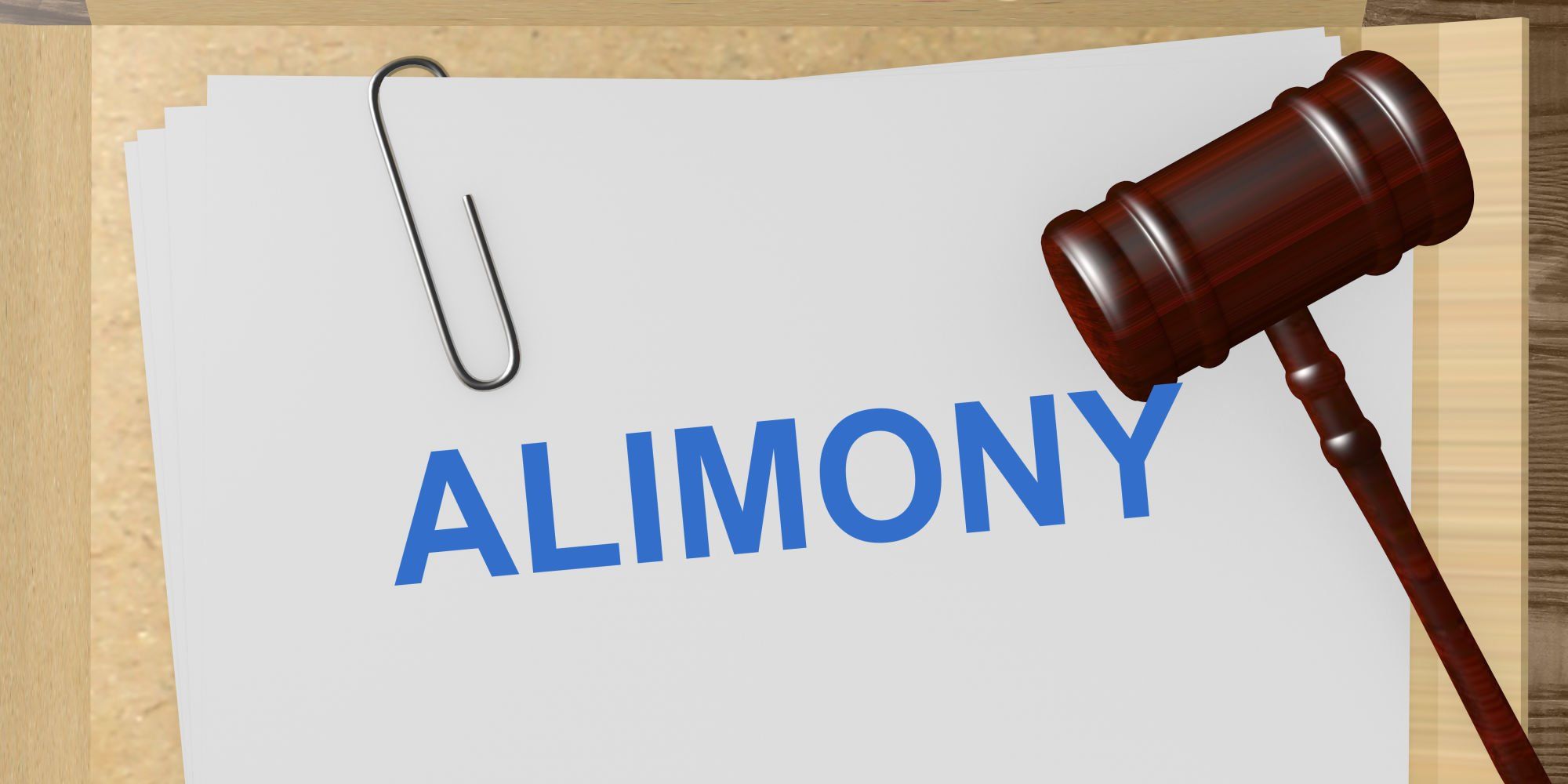The word alimony is derived from the Latin word “alimonia”, which means sustenance. In other words, it is an obligatory maintenance amount, decided by the court which is to be paid by one spouse to the other during or after the divorce proceedings. It is generally provided, if a spouse is unable to maintain himself. In most cases the husband maintains the wife but in some cases the court might ask the wife to maintain the husband, In this article we cover various aspects related to divorce alimony rules in India
In India, different laws govern different religions. In this article, we will discuss different provisions dealing with alimony/maintenance.
Index:
-
Types of alimony/maintenance
-
Alimony under different personal laws
-
Alimony as per secular laws
-
Can Husband Claim Alimony from the Wife?
-
Essential conditions considered by court
-
Criteria for Determining Quantum of Alimony
-
Grounds on which alimony can be refused
-
Can wife claim maintenance after relinquishment of her right?
-
Recent guidelines of SC on Alimony
Types of alimony/maintenance
The terms alimony and maintenance are both used interchangeably. But one must keep in mindthat, before the divorce proceedings come to an end, the term maintenance is used while after the divorce both the terms can be used interchangeably. Alimony or maintenance, both confer a duty on the partner who is economically better placed to maintain the dependent partner. It is important to note that alimony is different from child maintenance and both can be ordered separately by the court.
There are two types of maintenance/alimony-
Interim maintenance-
It refers to the maintenance amount that is to be paid to the dependent party during the continuation of the legal suit. It also includes the expenses of the legal proceedings. This amount has to be paid from the date of filing till the continuing of the suit and passing of the final judgment.
Permanent maintenance-
All religions contain a provision for permanent alimony/ maintenance. After passing the final decree the court might direct the husband/ wife to make a lump sum payment or periodic payments to the dependent spouse. Usually the spouse is directed to make periodic payments (weekly, monthly or yearly). Only in rare cases like mutual consent divorce, the spouse is asked to make a lump sum payment.
Alimony under different Personal Laws
Alimony in Hindu Laws
A Hindu woman can claim maintenance under the Hindu Marriage Act, 1955 and the Hindu Adoption and Maintenance Act, 1956. The term Hindu also includes Jains, Buddhists and Sikhs.
Under the Hindu Marriage Act, 1955, the court can direct either the husband or the wife to pay a lump sum or periodical maintenance to the other spouse. As per the Hindu Adoption and Maintenance Act, 1956, the wife can claim maintenance from the husband on the following grounds-
- If the husband has deserted (living separately without reasonable clause) her
- If he treats her with cruelty
- In case of bigamy
- If the husband has a concubine
- If he has converted to some other religion
- Or on any other valid ground
Alimony in Muslim Law in India
Muslim woman can claim alimony under Muslim Women (Protection of Rights on Divorce) Act, 1986. As per this act, the husband is liable to maintain his wife and family. The term used for maintenance is called “nafaqah”, it includes food, lodging and sustenance.
She can claim a reasonable amount during her iddat period. The husband is liable to provide the amount fixed as “Mahr”(amount decided at the time of marriage, to be paid at the time of divorce”) at the time of marriage. If there are any special allowances fixed at the time of marriage, then the husband is also liable to pay the same. If the wife is pregnant at the time of divorce, she can claim maintenance for at least two years after the birth of the child. If they had a child at the time of the divorce, the wife can also claim maintenance for the child.
Alimony in Christian Law in India
A Christian woman can claim maintenance under the Indian Divorce Act, 1869. As per this act, the wife can claim, not more than 1/5th of the husband’s income as maintenance. The wife must not re-marry and also remain chaste to claim maintenance under this act.
Alimony in Parsi Law in India
A Parsi woman/husband can claim maintenance under Parsi Marriage and Divorce Act, 1936. The provisions of the Parsi law are similar to the Christian divorce law apart from the fact that under the Parsi law, even the husbands can claim maintenance. This law also contains the provision of chastity and 1/5th income.
Alimony as per Secular Laws in India
Secular laws are laws that are independent of any religion. Secular laws dealing with alimony include-
-
Special Marriage Act, 1954
This act deals with inter-faith marriages. If a marriage is registered under this act, then the wife can claim either a lump sum maintenance or periodic installments. The quantum of payment is decided on the basis of income of both the spouses, assets of the husband, immovable property and other reasonable circumstances.
-
Section 125 of C.R.P.C
This is a secular law applicable on individuals of all faith. The purpose of this law is to provide immediate relief. The two basic conditions under this provision are that the husband must have sufficient means and the wife must not be able to maintain herself.
Can a Husband Claim Alimony from the Wife?
Only in a few cases, the court had directed the wives to pay maintenance. Section 24 and 25 of the Hindu Marriage Act, 1955 allows the husband to claim interim and permanent maintenance from his wife, in case he is disabled, unwell or unable to maintain himself. Even the Parsi law contains a provision under which a husband can claim maintenance. But the court has directed the wives to pay maintenance in some cases, when it turned out to be a necessity as it does not wish to promote the state of idleness among the husbands.
Essentials Conditions Considered by Court while Granting Maintenance
The court considers a variety of factors while deciding the quantum and liability of maintenance. These factors include –:
- Income status of both the spouses
- Age of both the spouse
- Needs of the spouse claiming maintenance
- Number of children to be maintained
- The independent income and assets owned by both the spouses individually
- Lifestyle/ status that the spouse claiming maintenance used to enjoy in her matrimonial home
- Need for basic provisions like food, shelter, clothing, etc.
- Medical necessities of the claimant
- Liabilities of the claimant and the better off spouse
- Education needs of children
- Number of persons to be maintained by the claimant and the other spouse
- Other factors which court deems necessary.
Even in cases where the woman was earning, the court had directed the payment of maintenance when there was a gap in the living standard of the spouses. The court after evaluating these factors decides the quantum of maintenance. In case of mutual consent divorce, the alimony amount is decided as per the agreement between both the parties. Both the parties mutually decide the amount to be paid as maintenance.
Criteria for Determining Quantum of Alimony
There is no straightjacket formula laid down by court to calculate alimony. It can be provided as a periodical payment or as a one-time lump sum amount.
The court directs lump sum payment mostly in mutual consent divorce cases or when the other party demands one-time payment. In case of periodical payment (monthly) of alimony, the Supreme Court has benchmarked not more than 25% of the husband’s net salary as the alimony amount. No such amount has been decided for one-time payment, but usually it ranges from 1/3rd to 1/5th of the net worth of the husband. The court after evaluating all the facts and circumstances, including standard of living of both the spouse, decides the alimony amount. The court ensures equity in order to avoid one party from benefitting at the cost of the other.
Grounds on which Alimony can be Refused
The right of the divorced woman to obtain the maintenance ceases when she marries someone else or gets involved with another person romantically. In such cases, the husband is advised to bring the matter before the court. The court after examining the facts can rescind or modify the order.
Even in cases where the standard of living of the wife has changed (e.g. She gets a better job, higher pay), the husband can bring the matter before the court to modify the alimony order.
Further, the court can order non-payment of alimony by the husband on the following grounds-
- When the wife marries someone else, howeverin this case, if the husband pays child maintenance, he has to continue paying the same.
- When the wife was living in adultery
- If on non-reasonable grounds the wife lived separately or refused to live with the husband
- If the wife has relinquished her right to maintenance
Can Wife Claim Maintenance after Relinquishment of her Right?
It is a decided law that even if the wife relinquishes her right to maintenance at the time of divorce, she still can claim it later in life after providing sufficient grounds under Section 125 CRPC. In a landmark judgment, in Shahnaz Bano v. Babbu Khan ; 1985 SCC OnLine Bom 200, the court had observed that: “even in a case covered by Clause (c) of Section 127 (3) of CrPC, where the wife has surrendered her rights voluntarily, in a given case, if after waiving her rights to maintenance, she becomes vagrant and destitute and is unable to maintain herself, then irrespective of her personal law, she would be entitled to avail statutory remedy for maintenance under Section 125 of CrPC.”. So, if the wife proves after the divorce that she does not have sufficient means to support herself, she can claim maintenance from the husband.
Recent Guidelines of SC on Alimony
The bench of Justice Indu Malhotra and Justice R. Subhash Reddy has framed guidelines to clarify the law on alimony/ maintenance.
These guidelines include-
Overlapping Jurisdiction
The party is not barred from filing a suit under different enactments simultaneously say CRPC and Hindu Marriage Act, but this leads to multiplicity of court orders and proceedings. In order to simplify such cases, the court held that, “It is well settled that a wife can make a claim for maintenance under different statutes. For instance, there is no bar to seek maintenance both under the D.V. Act and Section 125 of the Cr.P.C., or under H.M.A. It would, however, be inequitable to direct the husband to pay maintenance under each of the proceedings, independent of the relief granted in a previous proceeding.” So, the court directed that, in subsequent maintenance proceedings, the parties must disclose the previous proceedings or alternate proceedings and orders, so that the court can pass an order accordingly.
Date from which the maintenance is to be provided
The court held that in the interest of justice, maintenance must be awarded from the date of institution of the suit.
Criteria for awarding maintenance
The court decided this issue on grounds of equity. It observed that maintenance must be reasonable. It held that, “The maintenance amount awarded must be reasonable and realistic, and avoid either of the two extremes i.e. maintenance awarded to the wife should neither be so extravagant which becomes oppressive and unbearable for the respondent, nor should it be so meagre that it drives the wife to penury. The sufficiency of the quantum has to be adjudged so that the wife is able to maintain herself with reasonable comfort.”
Payment of interim maintenance
In most of the cases, the spouses fail to give a clear picture to the court. They try to conceal material facts in order to obtain an order in their favour. The court on this issue observed that, “While there is a tendency on the part of the wife to exaggerate her needs, there is a corresponding tendency by the husband to conceal his actual income.” It directed that the Affidavit of Disclosure of Assets and Liabilities must be filed by both the parties in all maintenance proceedings, throughout the country.
It is true that divorce can be quite taxing for both the spouses but knowing one’s rights makes it a bit easier. Because the alimony laws are quite complex, it is advisable to consult a lawyer who can guide through the applicable law and the procedure. It is important for the parties to get empowered and protect their rights. RCIC’s practice as one of the best Divorce Lawyers in India


 +011 414 86 022 |
+011 414 86 022 | 


















